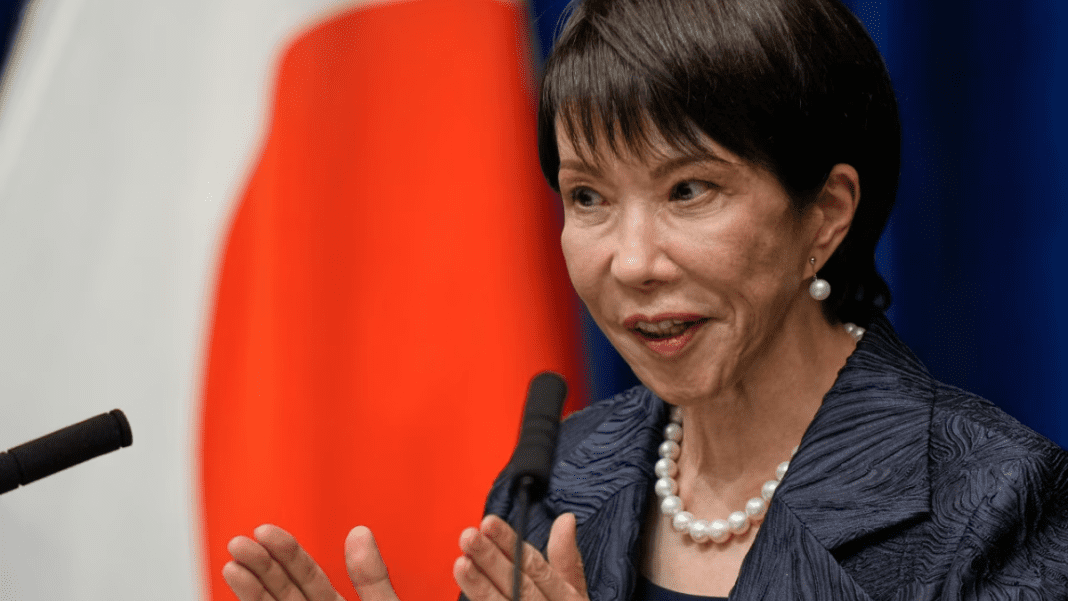U.S. President Donald Trump recently contacted Japanese Prime Minister Sanae Takaichi and urged her to soften her public comments about Taiwan, a sensitive issue in East Asia, according to officials who were briefed on the conversations. His advice came shortly after a long and serious phone call with Chinese President Xi Jinping.
A Sensitive Call Shaping East Asia Diplomacy
This moment unfolded during a period of rising sensitivity in East Asia, where even small statements can create major diplomatic waves. Earlier in November, Takaichi suggested that a possible Chinese attack on Taiwan could trigger a Japanese military response. Her remark immediately caused a stir in Tokyo and sparked a strong reaction from Beijing.
China views Taiwan as part of its territory. The island, however, governs itself democratically. Any suggestion that foreign countries might defend Taiwan is seen by China as interference in what it calls internal affairs, making the issue extremely delicate in East Asia.
China warns of foreign interference after Japan plans missile deployment near Taiwan
President Xi was angered by Japan’s comments. During his call with Trump, Xi spent nearly half of the hourlong conversation stressing China’s “historic claim” to the island and emphasizing that both Washington and Beijing share responsibility for maintaining global order. People briefed on the call said Xi’s tone made his frustration very clear.
Trump listened closely. The timing of the call mattered because the United States must manage its long-standing alliance with Japan while also handling its complex relationship with China. Soon after speaking with Xi, Trump reached out to Takaichi and encouraged her to avoid language that could further heighten tensions.
Reports said Trump’s advice was subtle. He did not pressure Takaichi to take back her comments, but he did tell her that lowering the volume on the issue would help prevent more diplomatic trouble.
Why Japan’s Comments Sparked Tension
Prime Minister Takaichi’s statement caught attention because it touched on one of the most sensitive topics in East Asia: what might happen if Taiwan and China clash. Japan rarely outlines in public how it would respond to a conflict involving Taiwan, even though it is a key U.S. ally and sits close to the area.
The comment triggered a strong diplomatic reaction from China. Chinese officials criticized Japan and accused it of increasing tensions in an already fragile East Asia environment. For Beijing, Taiwan represents national pride and a long-standing political dispute dating back to the Chinese civil war.
Tensions Explode: China Threatened as Japan Arms Philippines Near Taiwan
That is why Xi Jinping used much of his call with Trump to explain China’s position in detail. He repeated that Taiwan is central to China’s identity and territorial claims, and he made clear that comments from foreign leaders—especially leaders from nearby countries in East Asia—could worsen an already sensitive situation.
Japan, on the other hand, faces its own concerns. China has been increasing its military flights and naval activity around Taiwan and near Japanese islands. These movements have pushed Tokyo to pay closer attention to regional security, especially in the broader East Asia neighborhood.
However, Japan also understands that sharper statements can easily spark stronger reactions from China. Because the issue involves both national security and diplomacy, even a single sentence from a leader can shift the tone across East Asia.
This is why Trump’s message to Takaichi mattered. It was not about changing Japan’s security goals but about preventing unnecessary misunderstandings.
Trump’s Measured Effort to Cool a Rapidly Heating East Asia Dispute
According to U.S. and Japanese officials, Trump’s message to Takaichi was gentle but carefully phrased. He suggested that she avoid repeating statements that might inflame the situation. He did not demand that she walk back her earlier comment, but he advised her that diplomacy works better when the temperature is lower.
Officials told reporters that Trump’s call came directly after hearing Xi’s concerns. People familiar with the matter said Trump wanted to help keep a diplomatic argument from growing into a bigger confrontation. As leader of a country that works closely with both Japan and China, he found himself navigating familiar but complicated East Asia tensions.
Prime Minister Takaichi, known for her strong security views, listened to Trump’s guidance. While she did not retract what she had said, she stopped adding new comments that might provoke another reaction from Beijing.
Japan moves to advance Yonaguni missile plan amid rising concerns over Taiwan
The exchange shows how fast issues connected to Taiwan can raise emotions across East Asia. China sees the island as part of its sovereignty. Taiwan continues to govern itself. Japan watches the region closely because of its geographic and security position. And the United States remains tied to all three players through alliances, diplomacy, and global responsibilities.
For now, Trump’s advice to “lower the volume” helped ease immediate pressures. The underlying disagreements still exist, but the sensitive phone calls among Trump, Xi, and Takaichi helped prevent further escalation during a tense moment in East Asia.

